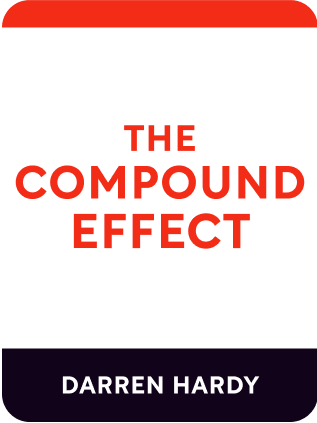

This article is an excerpt from the Shortform book guide to "The Compound Effect" by Darren Hardy. Shortform has the world's best summaries and analyses of books you should be reading.
Like this article? Sign up for a free trial here .
Why is habit change so difficult? Why do most people fail when they try to replace their old, self-defeating habits with new, positive habits?
Habit change is hard. With some habits, it may even seem impossible. This is because many bad habits are involuntary—they were created unconsciously. So, changing them requires awareness, conscious effort, and intentionality.
Read about the psychology of habit change.
The Psychology of Habit Change
Habits are acquired behaviors that have become nearly involuntary; they put us on “autopilot” in many aspects of our day-to-day lives. Think about how little thought you put into brushing your teeth, strapping on a seatbelt, or driving to work. This is exactly why habit change is so hard: habits require little conscious energy, they can free us to focus our mental energy on more creative endeavors.
Habits can be good or bad. At their worst, habits can run you in the wrong direction without you even realizing what’s happening. It’s like the story of a man on a horse rapidly galloping by. Someone asks him where he’s going, and he says he doesn’t know—ask the horse. Your habits are like the horse, steering the direction of your life.
Good habits, however, take you in a positive direction—and you control the ride. If you are a healthy eater, you probably have very healthy food-choice habits. If you’re fit, you likely have good exercise habits. In fact, successful people all seem to share the common trait of good habits in many aspects of their lives. Successful people aren’t any smarter or better than anyone else, but their habits drive them toward more knowledge, competence and skills.
Be Like Larry
Basketball great Larry Bird is an example of good habits launching an ordinary person into an extraordinary success. Bird wasn’t the most gifted athlete, but still managed to lead the Boston Celtics to three world championships. His habits drove him to greatness. For example, growing up, he had the habit of shooting 500 free-throw shots every morning. This preparation led him to become one of the most successful and consistent free-throw shooters in the NBA. Through habit, he conditioned himself to have the automatic responses of a champion.
Changing Your Destructive Habits
The key to successful habit change is to get off autopilot and change the unconscious tendencies that are holding us back. Though these habits were created unconsciously, we can consciously change them and craft new, positive habits that serve our lives well. We can prepare ourselves to do this by:
- Resisting the lure of instant gratification
- Finding your “why”—your motivation for change
- Finding out who and what you’re fighting
Resist the Lure of Instant Gratification
We all know the “right” things to do to live a healthy life. We know we shouldn’t have Pop-Tarts for dinner or watch reality TV for 3 hours a night. So why do we allow these bad habits to continue? The problem is our need for instant gratification.
Often, the payoff you receive from instant gratification obliterates any concern in your conscious mind for long-term ramifications. For example, if eating a piece of cake instantly put 50 pounds on you, you’d put the fork down. If making one less sales call at work got you immediately fired, you’d pick up that phone. But since the consequences of these small actions can take years to show up, courtesy of the Compound Effect, it’s easy to choose instant gratification over the correct behavior.
The first step to successful habit change is to wake up and realize the true ramifications of the bad habits we indulge in and know that even the smallest changes can drastically affect the outcomes in your life.
Think of a plane traveling cross-country; if the nose is even 1 percent off course, the plane will end up 150 miles off course in the end. This is like a bad habit; the behaviour doesn’t seem like a big deal in the moment, but it can ultimately lead you way off course in your life.
Find Your Why
Habit change takes more than willpower. Willpower has likely failed you in the past. Think of resolutions that were abandoned and diets that went by the wayside. Willpower is not strong enough to keep you from sliding back into your ingrained bad habits.
Instead of willpower, Hardy suggests you draw upon what he calls “why-power.” You’ve got to figure out what you want and why you want it or you’ll give up too easily. Your “why” has to be incredibly motivating because it must ignite your enthusiasm and passion—emotions that will fuel your persistence. Knowing your “why” helps you stick through the hard stuff.
Identify Who or What You’re Fighting—Your “Enemies”
A motivating fight can give you strength and purpose. Throughout history, fighting an enemy has led to innovation and transformation. Think about David and Goliath, Rocky and Apollo Creed, or Microsoft and Apple.
Motivation doesn’t always come from a noble place; a negative emotion or experience can fuel your “why-power” and bring about successful results. We all have the ability to take hurtful experiences from our past and use them to fuel constructive change. For example, the great football coach Pete Carroll grew up with a chip on his shoulder because he was so small. He felt the need to fight and prove his worth and was rewarded with great success.

———End of Preview———
Like what you just read? Read the rest of the world's best book summary and analysis of Darren Hardy's "The Compound Effect" at Shortform .
Here's what you'll find in our full The Compound Effect summary :
- How small, daily actions can add up to big successes (or failures)
- Why it's easier to rely on the compound effect over time instead of taking big action all at once
- How it's possible to be better off starting with a penny than $3 million






